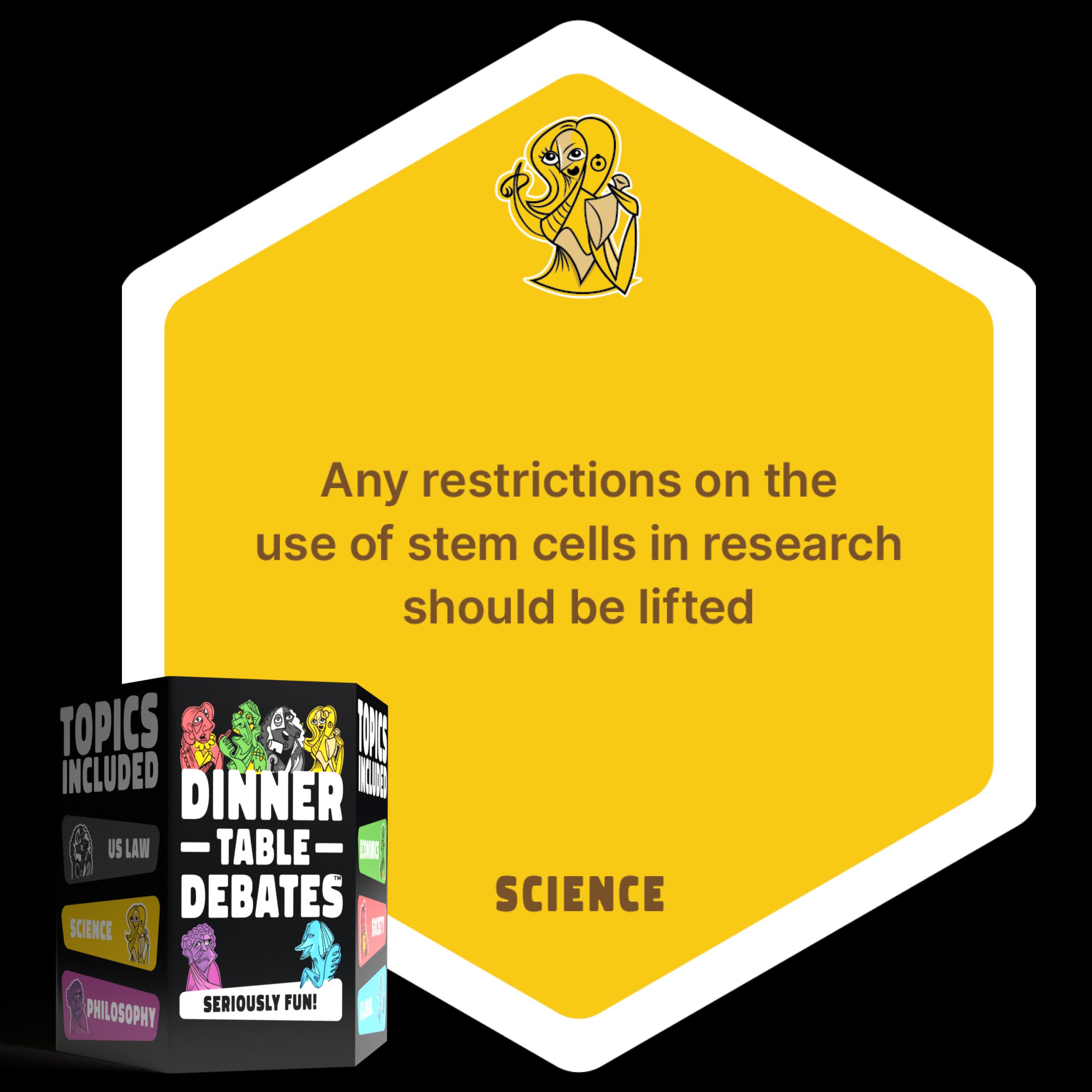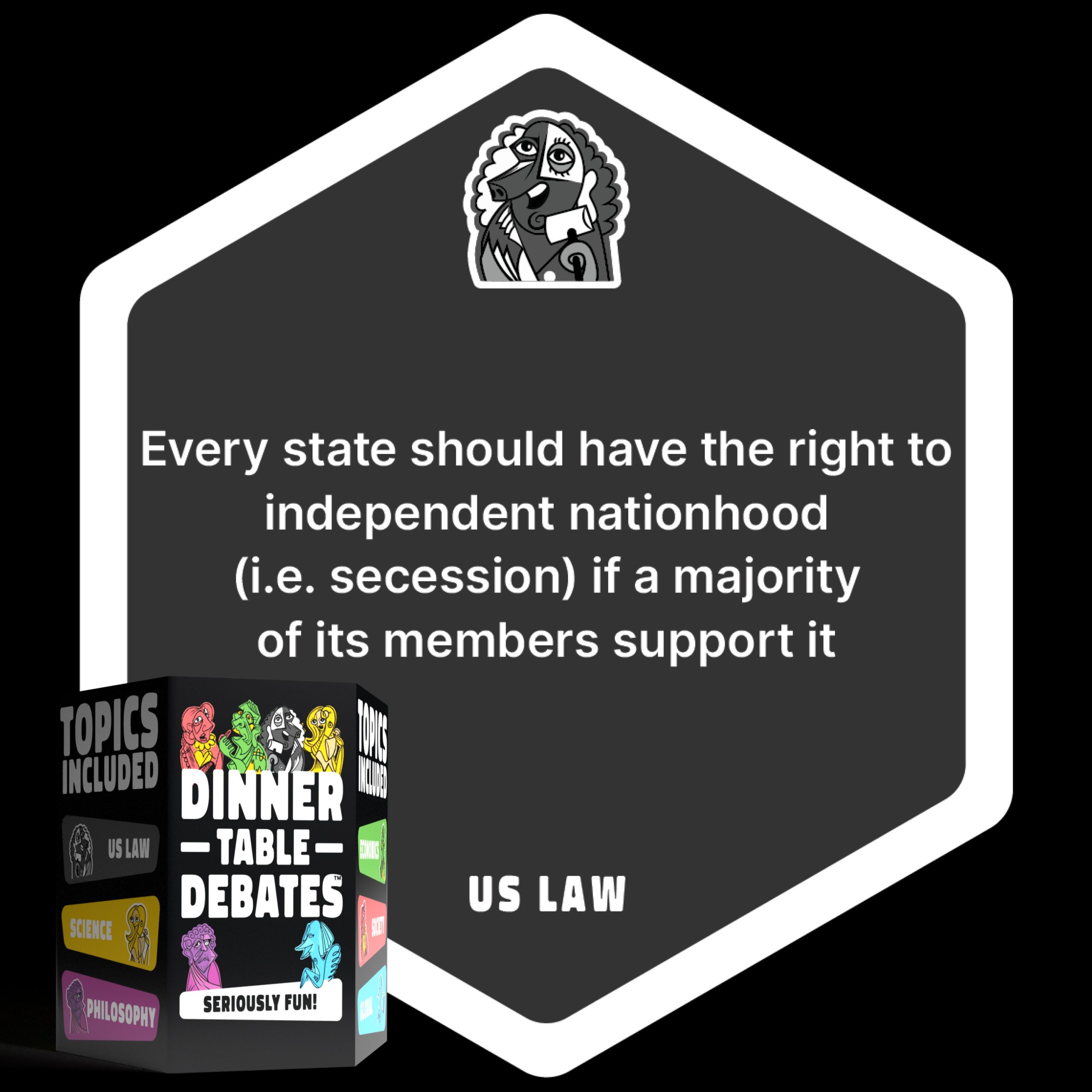Every year at tax time, you’re probably hoping to get a refund or may have a tax bill to pay, but how does paying these taxes make you feel? Do you feel like your tax dollars are helping to support society and essential services, or do you think individuals could better spend that money, meaning we should have fewer taxes? Could society function better if taxes were lower, allowing people to choose how they spend or invest their money? Or does this approach sacrifice essential services that support society as a whole?
"Welcome to your Dinner Table Debates Daily Deep Dive, where we explore real topics from our decks and give you everything you need to debate in under 10 minutes. Today's topic is ‘Low Taxes Are Preferable Over Extensive Government Services’ and comes from our Full Size Essentials Collection deck. Let’s dig in!"
While this is a common debate between Republicans, who prioritize lower taxes, and Democrats, who prefer more government services, this discussion started with the first societies ever created and has inspired philosophical speeches for centuries. American philosopher Henry David Thoreau famously said, “That government is best which governs least,” reflecting a belief that minimal government intervention allows more freedom and prosperity. Meanwhile, others argue for a government role in providing public services to promote equality and well-being, a concept promoted by philosophers like John Stuart Mill, who saw government intervention as a way to ensure equal opportunities for all.
This debate is essential to how societies function and impacts nearly every aspect of daily life. Whether through healthcare, education, or social welfare, the balance between taxes and government services influences our economy, freedom, and how resources are distributed. Understanding this debate sheds light on what kind of society we prefer and what values we prioritize—individual freedom or collective support.
Agree – Low Taxes Are Preferable Over Extensive Government Services
Disagree – Low Taxes Are Not Preferable Over Extensive Government Services
This debate is complex because it hinges on the values we prioritize: individual freedom versus collective support. Balancing economic efficiency with social welfare remains an ongoing challenge, and neither side offers a perfect solution for every situation.
Today, we examined whether low taxes are preferable over extensive government services. The Agree side argued that it promotes individual freedom, economic growth, and reduced government waste, while the Disagree side highlighted the importance of publicly funded services to ensure equality, address social injustices, and improve societal productivity. This debate invites us to consider what kind of society we wish to create and the role we want government to play in our lives.
The debate over low taxes versus extensive government services is especially relevant now with major U.S. tax policy decisions on the horizon. Both major political parties propose different approaches to the 2017 Tax Cuts and Jobs Act (TCJA), set to expire in 2025, which could raise taxes unless renewed. Generally, Republicans favor extending most TCJA provisions to keep taxes low across income levels, believing this will drive economic growth. Democrats, however, aim to maintain lower tax rates for households earning under $400,000 while introducing higher taxes on wealthier individuals and corporations to fund social programs and reduce income inequality.
The stakes are high: If Congress doesn’t extend the TCJA, many Americans could see their tax bills rise, with changes such as a higher top tax rate (39.6% instead of 37%), lower estate tax thresholds, and a reduction in the standard deduction. The outcome of the 2024 elections will be crucial in shaping these policies, influencing the balance between tax rates and funding for services such as Medicare and social welfare initiatives.
This discourse is not unique to the U.S.; many European countries with expansive welfare programs maintain higher tax rates to support these services, contrasting with lower-tax models like those of the U.S. and Australia. Ultimately, each approach reflects differing beliefs about economic growth and social equity.
Looking to dig into this topic even more? When playing Dinner Table Debates, the Agree side sets the stage and defines the debate topic. This one topic could lead to further discussions about tax structures, the role of government in providing social welfare, and the trade-offs between personal responsibility and collective support. Here are some ways that Agree could redefine this debate topic:
"If you enjoyed our deep dive, you can debate this topic and many others by getting your own Dinner Table Debates deck at DinnerTableDebates.com. It's a unique game because every round starts with randomly assigning agree or disagree, then you pick the topic, meaning you might be debating for something you disagree with—or vice versa! But that's the point! Stretch your brain, gain clarity, improve critical thinking and empathy, and have fun doing it! You can also join the debate on our Instagram and TikTok. Get ready for some thought-provoking discussions that challenge your assumptions and broaden your understanding of the world around you! Happy debating, and remember, everyone is always welcome at the table."

Should scientists be free to explore every possible avenue to cure debilitating diseases? Or, do we risk crossing an ethical line by lifting restrictions...

SummaryIs there a place that feels like home to you—a place where your culture, values, and experiences are truly understood? What if that place...

Have you ever wondered why some schools have state-of-the-art facilities while others are struggling just to provide basic supplies? How many teachers do you...